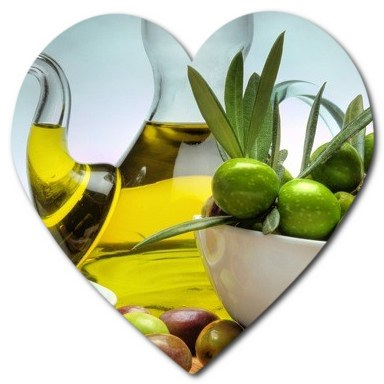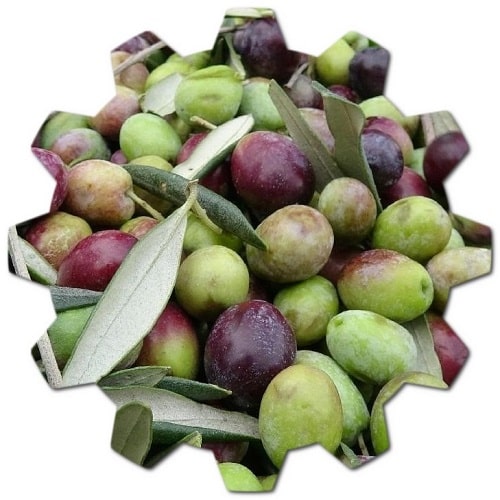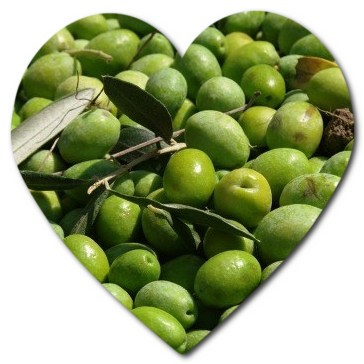What are the main benefits of olive oil?
What is cold-pressed olive oil good for? Cold-pressed olive oil mainly contains oleic acid, a fat that can help lower cholesterol. It also provides omega-6 and omega-3 fats, which are essential for your health. Rich in vitamins E and K, it contains powerful antioxidants that can protect your body against numerous diseases.
Helps Weight Loss Olive oil is rich in monounsaturated fatty acids. Monounsaturated fatty acids are very beneficial for heart health. It is also effective in maintaining blood sugar levels. In addition, olive oil provides a feeling of satiety and provides less food consumption. What are the benefits of olive oil drunk on an empty stomach? Reduces malignant cholesterol and balances blood sugar. In other words, olive oil that you drink on an empty stomach not only reduces malignant cholesterol, but also increases benign cholesterol that protects vascular health. The reason for this is the oleic acid it contains.
Is it okay to drink olive oil at night? There is no scientific evidence that there is a specific benefit to drinking olive oil at bedtime. Drinking olive oil is mostly used as cooking oil in meals or as a salad dressing and is preferred for its nutritional value and health benefits. Olive oil is widely recognized for its numerous health benefits, which are primarily attributed to its unique composition of monounsaturated fats, antioxidants, and other bioactive compounds. Here are some of the main benefits of olive oil:
Heart Health:
- Monounsaturated Fats: Olive oil is rich in monounsaturated fats, particularly oleic acid. These fats can help reduce levels of LDL (low-density lipoprotein) cholesterol, which is often referred to as “bad” cholesterol. Lowering LDL cholesterol can contribute to a reduced risk of heart disease.
- Blood Pressure: Olive oil consumption has been associated with lower blood pressure levels, which is beneficial for cardiovascular health.
Antioxidant Properties:
- Polyphenols: Olive oil contains various polyphenolic compounds, including hydroxytyrosol and oleuropein, which are potent antioxidants. These antioxidants help protect cells from oxidative damage caused by free radicals, potentially reducing the risk of chronic diseases.
Anti-Inflammatory Effects:
- Oleocanthal: Olive oil contains oleocanthal, a natural compound with anti-inflammatory properties similar to ibuprofen. Regular consumption of olive oil may help reduce inflammation in the body, which is linked to numerous health issues, including chronic diseases.
Weight Management:
- Satiety: The monounsaturated fats in olive oil can contribute to a feeling of fullness and satiety, which may help control appetite and support weight management when used in moderation.
Digestive Health:
- Mild Laxative Effect: Olive oil may have a mild laxative effect and can be beneficial for digestive health by promoting regular bowel movements.
Brain Health:
- Cognitive Function: Some studies suggest that the Mediterranean diet, which includes olive oil as a primary fat source, may be associated with improved cognitive function and a reduced risk of cognitive decline in older adults.
Anti-Cancer Properties:
- Antioxidants in olive oil may help protect against certain types of cancer by reducing oxidative stress and inflammation.
Skin and Hair Health:
- Olive oil is often used topically for skincare and haircare due to its moisturizing and antioxidant properties.
Diabetes Management:
- Some research suggests that consuming olive oil as part of a balanced diet may help improve insulin sensitivity and blood sugar control in individuals with type 2 diabetes.

It’s important to note that while olive oil offers various health benefits, its benefits are most pronounced when it is part of a balanced and healthy diet. Additionally, the type and quality of olive oil can vary, with extra virgin olive oil being the least processed and highest in beneficial compounds. When incorporating olive oil into your diet, choose high-quality, extra virgin olive oil for maximum health benefits. However, it’s essential to consume it in moderation, as it is calorie-dense like all oils and fats.
Is a spoonful of olive oil a day good for you?
Consuming a spoonful of olive oil a day can have health benefits, but it’s important to do so in moderation and as part of a balanced diet. Olive oil is considered a healthy fat and is a staple of the Mediterranean diet, which has been associated with numerous health benefits, including improved heart health and reduced risk of chronic diseases. Here are some considerations:
- Heart Health: The monounsaturated fats in olive oil, particularly oleic acid, can help improve heart health by reducing LDL (low-density lipoprotein) cholesterol levels and inflammation. This can contribute to a lower risk of heart disease.
- Antioxidants: Olive oil contains antioxidants, such as polyphenols, that can help protect your cells from oxidative damage caused by free radicals.
- Weight Management: The healthy fats in olive oil may contribute to a feeling of fullness and satiety, which can help control appetite and support weight management when used in moderation.
- Digestive Health: Olive oil can have a mild laxative effect and may promote regular bowel movements, which can be beneficial for digestive health.
- Blood Sugar Control: Some research suggests that olive oil may help improve insulin sensitivity and blood sugar control, which can be beneficial for individuals with type 2 diabetes.
However, it’s essential to consume olive oil in moderation because it is calorie-dense. A tablespoon of olive oil contains about 120 calories, so excessive consumption can contribute to weight gain if not balanced with other aspects of your diet.

When incorporating olive oil into your daily routine, opt for extra virgin olive oil (EVOO), which is less processed and retains more of its beneficial compounds. Here are some tips for using olive oil wisely:
- Use it as a salad dressing or drizzle it over cooked vegetables.
- Use it for sautéing and cooking instead of less healthy oils or butter.
- Be mindful of portion sizes, as even healthy fats should be consumed in moderation.
Remember that overall dietary choices matter just as much as individual components. A spoonful of olive oil can be part of a healthy diet, but it should complement a balanced and varied intake of fruits, vegetables, whole grains, lean proteins, and other nutritious foods. Consult with a healthcare provider or nutritionist if you have specific dietary concerns or health conditions that may require personalized recommendations.
Is it good to take olive oil every day?
Consuming olive oil every day can be part of a healthy diet for many people, and it can offer numerous health benefits, as I mentioned in previous responses. However, the key is moderation and balance. Here are some considerations:
- Moderation: Olive oil is calorie-dense, with about 120 calories per tablespoon. If you consume it excessively, it can contribute to calorie intake and potentially lead to weight gain. Therefore, it’s essential to use olive oil in moderation.
- Quality Matters: Choose high-quality extra virgin olive oil (EVOO) whenever possible, as it contains more beneficial compounds compared to more refined olive oils. Look for EVOO that is cold-pressed and from a reputable source.
- Balanced Diet: Olive oil should be part of a balanced and diverse diet. It should complement other healthy foods, such as vegetables, fruits, whole grains, lean proteins, and other sources of essential nutrients.
- Individual Variability: Keep in mind that individual dietary needs can vary based on factors like age, gender, activity level, and health conditions. What’s suitable for one person may not be the same for another.
- Consider Cooking Methods: Olive oil is suitable for various cooking methods, including sautéing and salad dressings. However, be mindful of its smoke point (the temperature at which it starts to break down and produce smoke). Extra virgin olive oil has a lower smoke point compared to some other cooking oils like canola or grapeseed oil. It’s best for low to medium-heat cooking.
- Consult a Healthcare Provider: If you have specific dietary concerns, health conditions, or are considering significant dietary changes, it’s a good idea to consult with a healthcare provider or a registered dietitian. They can provide personalized guidance based on your individual needs and goals. Olive oil benefits >>

In summary, incorporating olive oil into your daily diet can be a healthy choice, provided it’s done in moderation and as part of a balanced overall diet. It’s not necessary to consume it every day, but when you do, choose high-quality extra virgin olive oil and use it wisely in various culinary applications.
How much olive oil should you take a day?
The amount of olive oil you should consume daily can vary depending on your individual dietary needs, calorie requirements, and overall dietary patterns. However, here are some general guidelines:
- Moderation: Olive oil is calorie-dense, with about 120 calories per tablespoon. It’s important to use it in moderation to avoid excessive calorie intake, which could lead to weight gain if not balanced with your overall calorie needs.
- Dietary Recommendations: Dietary recommendations often suggest that a daily intake of about 2 to 4 tablespoons (30 to 60 milliliters) of olive oil can be part of a healthy diet. This amount can provide health benefits without significantly contributing to excessive calorie consumption.
- Consider Your Diet: The amount of olive oil you consume should be considered within the context of your entire diet. If you regularly consume other sources of healthy fats like nuts, seeds, and fatty fish, you may not need as much olive oil.
- Cooking and Salad Dressings: Olive oil can be used for various culinary purposes, including sautéing, roasting, salad dressings, and drizzling over vegetables or pasta. The way you use it will influence how much you consume.
- Personal Factors: Your individual factors, such as age, gender, activity level, and health goals, can also impact your daily olive oil intake. Consult with a healthcare provider or a registered dietitian for personalized guidance.
- Quality Matters: Choose high-quality extra virgin olive oil (EVOO) whenever possible, as it contains more beneficial compounds compared to refined olive oils.
Remember that olive oil is just one component of a healthy diet. It should be part of a balanced and varied diet that includes a wide range of fruits, vegetables, whole grains, lean proteins, and other nutritious foods.

It’s important to emphasize that dietary needs can vary widely among individuals, so there is no one-size-fits-all answer regarding the ideal daily intake of olive oil. Tailor your olive oil consumption to your dietary preferences, calorie needs, and overall health goals. If you have specific dietary concerns or health conditions, consider seeking guidance from a healthcare provider or a registered dietitian for personalized recommendations. Are there any benefits of olive oil? >>
What is olive oil?
Olive oil is a type of edible oil that is derived from the fruit of the olive tree (Olea europaea). It has been a staple in Mediterranean cuisine and cultures for thousands of years and is widely used in cooking, salad dressings, and various culinary applications around the world.
Here are some key features and information about olive oil:
- Extraction: Olive oil is extracted from the fruit of the olive tree through a process called pressing or cold-pressing. The olives are crushed to extract the oil, and the quality of the oil can vary depending on the pressing method and the quality of the olives used.
- Types of Olive Oil:
- Extra Virgin Olive Oil (EVOO): This is the highest quality and least processed form of olive oil. It is obtained by cold-pressing olives and has the most robust flavor and aroma. EVOO is rich in antioxidants and beneficial compounds.
- Virgin Olive Oil: This is also obtained through cold-pressing, but it may have slightly lower quality and a milder flavor compared to extra virgin olive oil.
- Regular or Pure Olive Oil: This is a refined olive oil that has undergone processing to remove impurities. It is typically blended with a small percentage of virgin olive oil to improve flavor.
- Light Olive Oil: This is a highly refined olive oil with a very mild flavor. “Light” refers to its mild taste, not its calorie content. It still has the same calorie count as other olive oils.
- Flavor and Aroma: The flavor and aroma of olive oil can vary depending on the type and quality. Extra virgin olive oil, in particular, is known for its rich, fruity, and sometimes peppery taste.
- Health Benefits: Olive oil is considered a healthy fat and is a key component of the Mediterranean diet, which has been associated with numerous health benefits. It is rich in monounsaturated fats, antioxidants, and anti-inflammatory compounds. Regular consumption of olive oil has been linked to improved heart health, reduced risk of chronic diseases, and other health benefits.
- Culinary Uses: Olive oil is a versatile cooking oil used for sautéing, roasting, frying, and baking. It is also commonly used as a salad dressing, drizzled over vegetables, pasta, and bread, and as a flavorful addition to various dishes.
- Storage: Olive oil should be stored in a cool, dark place to protect it from light and heat, which can cause it to spoil. Proper storage can help maintain its flavor and shelf life.
- Cultural Significance: Olive oil has cultural and historical significance in many Mediterranean countries, where it is not only a dietary staple but also a symbol of tradition and heritage.
Olive oil is known for its many health benefits and culinary versatility, making it a popular and widely used ingredient in kitchens worldwide. Extra virgin olive oil, in particular, is prized for its exceptional flavor and health-promoting properties.





